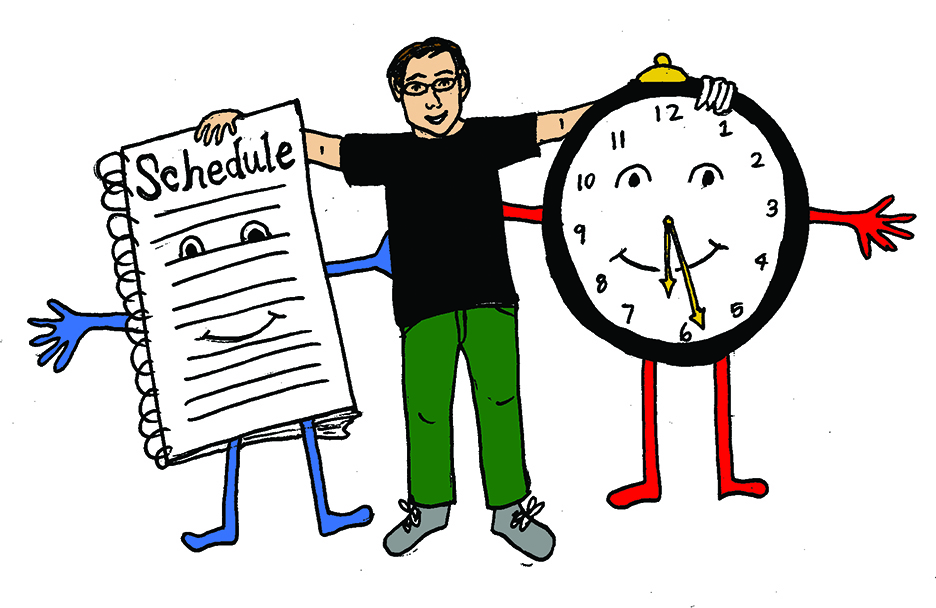Why finding stability in routine does not change the fact of my disability
April 14, 2017
Every morning I get up at 6:30 a.m. My first class does not begin until 10 a.m., but I still get up at 6:30 a.m. After I get up, I grab my towel, my shoes and my bathroom caddy (which is a lovely shade of sparkling pink) and I head to the bathroom. Once inside, I brush my teeth and take a shower. Then, I go to my room to get dressed. After packing my bag and grabbing my coat, I head to breakfast at Thorne Hall. For breakfast, I have strawberries and grapes, a blueberry muffin and whatever the main course of the morning is. Then I head to Hawthorne-Longfellow Library, where I study for two hours before going to class. Barring catastrophe, this is the routine that I go through every weekday morning.
My day-to-day life at Bowdoin is built around routine. I go to the dining halls at the same times every week and go to club meetings as regularly as I can. I study with the same people at the same times every week and of course go to classes on a regular—albeit school-designed—schedule. I find great comfort in the predictability of each day, and the days where my routine must be broken are as few and far between as I can make them. In this way, I have adapted to the disabling aspects of being autistic.
Having a predictable schedule allows me to cope with the chaos of life. For instance, when I was young, I would never have been able to eat in a place like Thorne. It is loud and echoing—even when there are only a few people there it can still be very confusing. As a child, I would have been far too overwhelmed by the sights and sounds of the dining hall to be able to eat there. I know this for a fact because I was unable to eat in my elementary school cafeteria, let alone Thorne. However, as I have grown I have found ways of adapting to large and loud spaces like Thorne. If I can make the experience predictable, by going at the same times, with the same people and eating the same things, then I can make the situation manageable. I can even have a good time!
This is how I have learned to handle most of the situations that I had difficulty with as a child. By mandating my own predictable schedule whenever possible, I can get by when my schedule changes.
However, this is not to say that by following a strict schedule I have somehow stopped being disabled. I have often had people come up to me to tell me they “had no idea [I] had autism.” While I realize they are coming from a well-intentioned place, and I take no offense to the statement, it can feel somewhat invalidating. When I hear this, it can feel as though the long years of work I have put in to adapt to a world not designed for me are swept under the rug. Worse, I sometimes worry that some might get the impression that I do not need the adaptations and accommodations I use every day to stay happy and healthy. The balancing act I play with my own brain is a precarious one, and it is only through great effort that I (apparently) make it look easy.


Comments
Before submitting a comment, please review our comment policy. Some key points from the policy: